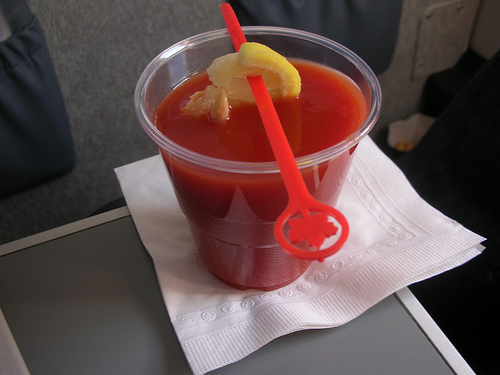
Why does food always seem to taste different when you’re flying? Is it the airline’s unappetizing and bland food?
Turns out, in a pressurized cabin at 30,000 feet, our perception of taste is affected. “There are several reasons for this: lack of humidity, lower air pressure, and the background noise,” Charles Spence, professor of experimental psychology at Oxford University told BBC.
Cornell University food scientists found in a recent study that was published in the Journal of Experimental Psychology: Human Perception and Performance that noisy situations, such as aboard a jetliner, compromised our taste, specifically the ability to discern sweetness. Scientists further found that umami taste was significantly enhanced.
Umami, a Japanese word that describes a savoury taste found in glutamate in foods; is one of the five basic tastes – sweet, sour, bitter, umami and salty. Umami is often described as a “meaty” taste that balances the overall flavour of a dish and induces salivation – integral in the perception of deliciousness. Many foods naturally are rich in umami, for example tomatoes.
The study demonstrated that the auditory conditions in air travel enhanced umami, whilst in contrast; exposure to loud noise dulled airline passengers’ sweet taste. Since tomatoes contain high levels of the umami provider, glutamic acid, which increases as the fruit ripens; it’s not surprising that Tomato Juice is one of the most consumed food or drink in air travel.
So next time when you find yourself under extreme noisy conditions, over 85 dB, likely aboard a jetliner, feel free to order some Tomato Juice as that will probably be the most delicious option you’ll have.
Journal Reference:
Kimberly S. Yan, Robin Dando. A Crossmodal Role for Audition in Taste Perception. Journal of Experimental Psychology: Human Perception and Performance, 2015; DOI: 10.1037/xhp0000044
